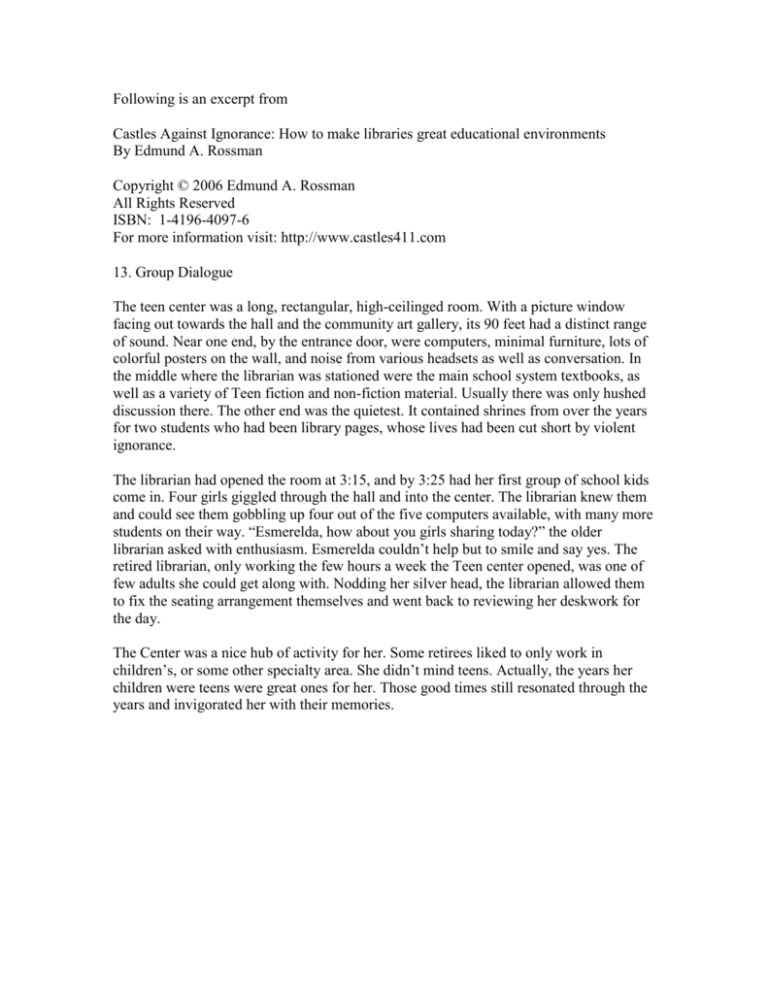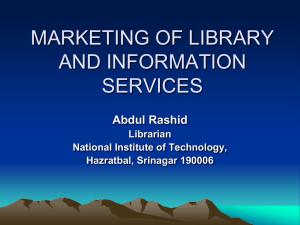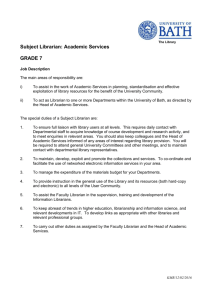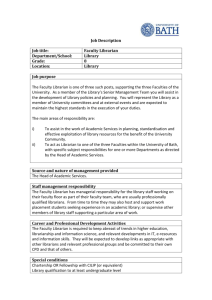
Following is an excerpt from
Castles Against Ignorance: How to make libraries great educational environments
By Edmund A. Rossman
Copyright © 2006 Edmund A. Rossman
All Rights Reserved
ISBN: 1-4196-4097-6
For more information visit: http://www.castles411.com
13. Group Dialogue
The teen center was a long, rectangular, high-ceilinged room. With a picture window
facing out towards the hall and the community art gallery, its 90 feet had a distinct range
of sound. Near one end, by the entrance door, were computers, minimal furniture, lots of
colorful posters on the wall, and noise from various headsets as well as conversation. In
the middle where the librarian was stationed were the main school system textbooks, as
well as a variety of Teen fiction and non-fiction material. Usually there was only hushed
discussion there. The other end was the quietest. It contained shrines from over the years
for two students who had been library pages, whose lives had been cut short by violent
ignorance.
The librarian had opened the room at 3:15, and by 3:25 had her first group of school kids
come in. Four girls giggled through the hall and into the center. The librarian knew them
and could see them gobbling up four out of the five computers available, with many more
students on their way. “Esmerelda, how about you girls sharing today?” the older
librarian asked with enthusiasm. Esmerelda couldn’t help but to smile and say yes. The
retired librarian, only working the few hours a week the Teen center opened, was one of
few adults she could get along with. Nodding her silver head, the librarian allowed them
to fix the seating arrangement themselves and went back to reviewing her deskwork for
the day.
The Center was a nice hub of activity for her. Some retirees liked to only work in
children’s, or some other specialty area. She didn’t mind teens. Actually, the years her
children were teens were great ones for her. Those good times still resonated through the
years and invigorated her with their memories.
Castles Against Ignorance: How to make libraries great educational environments
By Edmund A. Rossman
13. Group Dialogue, continued
However, as usual, she couldn’t dwell on those, as a loud group came down the hall.
These were all boys, loud and mean-looking, but boys of a certain age can look mean just
to emulate one of their musical or movie heroes. She didn’t know any of them, so she
just chose the tallest one to talk to. “Would you like to use a computer?” she said, really
to only him, not the others, using direct eye contact up at the youth. The boy and his
friends didn’t go to the nearby school---, they had cut classes somewhere else and were
just cruising. The way she asked him was like one of his older relatives asking if he
needed something at dinner. They both knew they had never met but she was treating
him--just him--like they were family. His real family was scattered, and when they got
together the times had been good ones, very special. Her warm invitation touched him
personally, although the librarian couldn’t have known why. Like Esmerelda, he couldn’t
help but drop the mean mask for a second, smile and say “No thanks Ma’am, just looking
for some friends.” He about-faced towards the door, leading his group out, when one teen
started snickering and in a girls voice repeated, “No thanks Ma’am.” The first boy
bumped him on his chest, and without breaking his stride towards the door said, “Sh-h-h,
have respect, you’re in a library, dude.”
The librarian smiled to herself, and thought, “Sometimes all it takes is one person won
over. One small stream will pick up others as it travels, to create a river, a raging torrent
that washes away ignorance.” As the boys walked quietly down the hall, looking at the
art, she gazed over at the quiet shrines, took a deep sigh, and returned her attention to her
duties.
***
When presented with a large group, for example a quintet of teenagers, one tactic you can
use is establishing dialogue with one person in the group, turning one away from
ignorance. Sometimes just turning one person's mind around, getting just one to identify
with what you're looking for, is enough to gain commitment from the rest of the group.
People of any age like to feel responsible. When faced with a potentially troublesome
group, find that person who might be the leader, isolate them with personal conversation,
and by speaking directly to them, negotiate accordingly.
Libraries need to be castles against ignorance, steaming cauldrons of learning. Sometimes
where they are located there's high crime, or the nearby schools may have lost discipline
over their students. To help achieve the proper decorum, when a group comes through the
castle walls, one visitor should feel that they have a special charge over the others. This is
only generated by your attention to them. If you are successful in this, they will be the
one to deal with or call you quickly when faced with ignorance. They will not allow
destruction of property or disruptive behavior.
Castles Against Ignorance: How to make libraries great educational environments
By Edmund A. Rossman
13. Group Dialogue, continued
Herb Cohen, a master negotiator and author of the classic, You Can Negotiate Anything,
describes negotiation as such:
“A negotiation is more than a exchange of material objects. It is a way of acting and
behaving that can develop understanding, belief, acceptance, respect and trust. It is the
manner of your approach, the tone of your voice, the attitude you convey, the methods
you use, and the concern you exhibit for the other side's feelings and needs.” 1
Speaking directly to one, while addressing the whole group, is a powerful technique.
Keeping steady but friendly eye contact, hand gestures, pointing at them, showing
confidence that you understand that they "get it" as far as what's expected, will empower
them and help them identify with you as a person more. And in situations where there's a
personal bond, especially an authority figure giving them respectful dialogue, the rewards
can be quite high. Your success comes when the group leader, not you, monitors their
actions in the library. Help a child or adult feel responsible and oftentimes they will be.
This is a great way to discover future librarians, which also fulfills our recruitment
strategy. By spotting, engaging, and rewarding in some way, young people to help us in
making the library a better place to learn, they may be encouraged to choose our field as a
career.
Exercise:
Layout three typical scenes with patrons: Children/Teens/Adults. Think of primary and
secondary needs they have for being at and/or using the library.
Link each with a library policy, principle or procedure. Write down brief statements that
show concern for the patrons needs and the correctness of library procedure.
Example:
Scene: Signing up people for computer time
Needs: Access to the Internet; saving money by not having to buy equipment or highspeed access.
Statements: “We need you to take some time to sign in for the computers so we can have
as many numbers to justify more computer purchases. Plus it helps us make sure
everyone gets a turn when it's busy.”
Castles Against Ignorance: How to make libraries great educational environments
By Edmund A. Rossman
13. Group Dialogue, continued
Notes and Selected Resources Of Interest:
13. Group Dialogue
1. Cohen, Herb. You Can Negotiate Anything. Secaucus, NJ: L. Stuart, 1980. 154
Of Interest:
Herb Cohen Online Power Negotiations Institute. Access date 25 Jan. 06.
<http://www.herbcohenonline.com/>
The web site of Herb Cohen contains some interesting interviews.
Negotiation Overview. 2000. Batna.com & Eric C. Gould. Access date 25 Jan. 06.
<http://www.batna.com/overview_v4.html>
A brief, but comprehensive review of the negotiation process. Good reading before a
negotiation if you don't have time to read a book!










